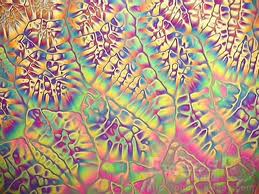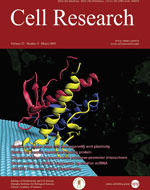导读:韩国研究人员宣布,发现一种酶,可以抑制包括肿瘤癌细胞和血液型癌细胞在内的各种癌细胞生长,可能有助于探索癌症新疗法。

韩国建国大学微生物工程教授安成冠(音译)引领的研究团队说,一种名为“木兰E3”的连接酶可侵入丝氨酸蛋白激酶,而后者正是各种癌细胞生长的关键“组件”。
“我们发现木兰酶可以侵入丝氨酸蛋白激酶细胞的线粒体,进而分解丝氨酸蛋白激酶,”韩联社18日援引研究团队的结论说。
线粒体是细胞的动力工厂,控制细胞的分裂、生长和死亡。
韩联社说,科学界上世纪90年代便发现丝氨酸蛋白激酶与癌细胞生长之间的直接关联性,但迄今没有特别有效的方法抑制特性活跃的丝氨酸蛋白激酶。在传统化学疗法中,蛋白激酶表现出相当强耐受度,这也是化学疗法在癌症面前显现弱点的主要原因。
研究团队说,木兰E3连接酶可控制丝氨酸蛋白激酶的特性为癌症治疗打开一条新的通道。借助这一原理,或可找到治疗癌症的“全能疗法”,不仅可治疗肺癌、乳腺癌、子宫癌等固体肿瘤类癌症,而且可医治白血病、骨髓癌、淋巴癌等血液型癌症。
建国大学研究团队的这一项目受到韩国科学教育技术部资金支持,学术论文发表在最新一期英国《自然》杂志的《细胞研究》分刊。

Akt is negatively regulated by the MULAN E3 ligase
Bae S, Kim SY, Jung JH, Yoon Y, Cha HJ, Lee H, Kim K, Kim J, An IS, Kim J, Um HD, Park IC, Lee SJ, Nam SY, Jin YW, Lee JH, An S.
The serine/threonine kinase Akt functions in multiple cellular processes, including cell survival and tumor development. Studies of the mechanisms that negatively regulate Akt have focused on dephosphorylation-mediated inactivation. In this study, we identified a negative regulator of Akt, MULAN, which possesses both a RING finger domain and E3 ubiquitin ligase activity. Akt was found to directly interact with MULAN and to be ubiquitinated by MULAN in vitro and in vivo. Other molecular assays demonstrated that phosphorylated Akt is a substantive target for both interaction with MULAN and ubiquitination by MULAN. The results of the functional studies suggest that the degradation of Akt by MULAN suppresses cell proliferation and viability. These data provide insight into the Akt ubiquitination signaling network.Cell Research advance online publication 13 March 2012; doi:10.1038/cr.2012.38.








